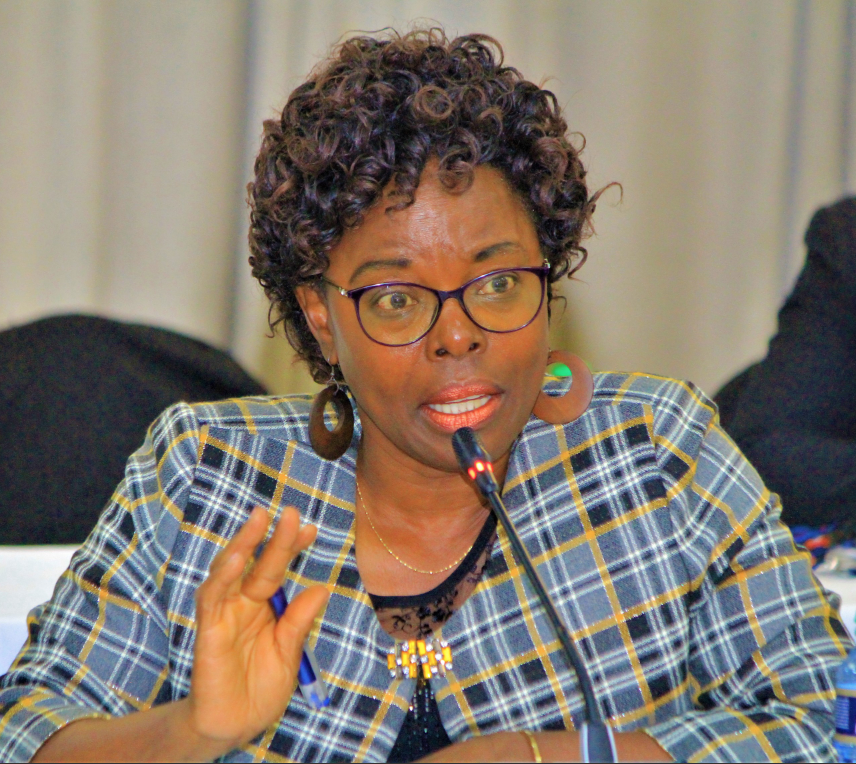
President William Ruto's administration’s austerity measures, which he announced in response to public outcry over wasteful spending and the withdrawal of the Finance Bill 2024, have yielded mixed results.
While Ministries, Departments, and Agencies (MDAs) report overall reductions in recurrent expenditures, particularly in travel, hospitality and operational costs, closer scrutiny reveals that key offices still have worrying instances of wastage.
Controller of Budget Margaret Nyakang’o’s report for the first nine months of FY 2024-25 highlights a Sh600 million drop in domestic travel, from Sh12.3 billion to Sh11.7 billion.
It also reports a Sh900 million cut in hospitality spending, from Sh4.6 billion that was posted in a similar period last year to Sh3.7 billion.
However, these gains are overshadowed by glaring exceptions like the Office of the President, whose domestic travel spending increased to Sh145 million from Sh34 million.
State House, which facilitates the President’s movements, spent Sh1 billion on domestic trips, up from Sh750 million the previous year.
The Internal Security department, which handles presidential functions, also recorded a 60 per cent surge in domestic travel costs to Sh1.04 billion from last fiscal year’s Sh650 million for the period under review.
The contradictions, which undermine the credibility of the austerity measures, extend to foreign travel.
Despite a decline in parliamentary expenditures, where the National Assembly cut foreign trips by Sh300 million from Sh1.3 billion and the Senate by Sh154 million, the Office of the President’s foreign travel budget shot up by over Sh9 million.
Travel expenses remain high, and totalled Sh16.83 billion in the period; foreign travel alone accounting for Sh2.29 billion.
Some MDAs, like the State Department for Foreign Affairs, spent heavily on diplomatic missions, including Sh216.28 million on campaigns for Raila Odinga’s AUC chairperson bid.
Even in hospitality, where MDAs collectively saved Sh900 million, State House spent Sh697 million, an exorbitant amount despite a Sh74 million dip.
The report further notes reductions in printing and advertising (Sh600 million), rentals (Sh400 million) and insurance (Sh5.4 billion).
However, these savings are partially offset by rising fuel expenses, which went up by Sh100 million in the review period and vehicle maintenance costs, which also went up by Sh400 million.
Auditor General Nancy Gathungu has been highlighting inefficiencies in fleet management as a recurring issue in audits of MDAs.
Meanwhile, Nyakang’o has flagged the government’s failure to curb pending bills, which stood at Sh511.75 billion by March 2025, pointing to deeper fiscal mismanagement.
Small businesses, particularly suppliers to the state, continue to bear the brunt of delayed payments, undermining the very economic stability that austerity measures aim to secure.
President Ruto, in rooting for austerity, promised radical cuts, including dissolving 47 state corporations, slashing advisory roles by 50 per cent and suspending non-essential travel.
But the Controller of Budget’s data paints a different picture. As security budgets rise by billions, social sectors like health and education face inefficiencies.
The State Department for Medical Services, for example, has been flagged for Sh1.06 billion that went to "other expenses," including vague "routine maintenance" costs.
Nyakang’o says her review unearthed critical issues that impede the budget, citing Kenya Kwanza’s slack in settling pending bills and haphazard budgeting for government programmes.
She also raised concerns that ministries and agencies were reviewing targets mid-year and also inordinately delayed projects, especially those running for multiple financial years.
As of March, according to CoB data, the government owed suppliers more than Sh511 billion, compared with Sh516 billion reported as of June 30, 2024.
“The National Treasury should fast-track the verification of all pending bills of the national government and implement the pending bills verification report, including hastened settlement of all bills assessed and cleared for payment,” the budget boss said.
She further flagged unrealistic revenue targets, noting that depressed performance strained government cash flow, subsequently making counties and ministries receive disbursements late.
The budget controller has backed the Ruto administration’s call to expand the revenue base, restating the need to seal revenue leakages.
“The National Treasury should implement deliberate initiatives to improve collections from ministries and county governments,” Nyakang’o said.
The report further flags the government’s overreliance on the law, which allows spending before approval by the National Assembly.
In the review period, Treasury provided about Sh49 billion to ministries and agencies before getting MPs’ nod.
Of the amounts, Nyakang’o reports that her office approved spending of Sh42 billion but said some were unjustified.
“Scrutiny of the approvals revealed several instances where the reason for additional funding was to support existing government programs and payment of pending bills, which should have been anticipated during the budget formulation,” she said.
The report further flags Sh68 billion spending on subsidies, as well as transfers to other government institutions – an indication they are still being propped up despite merger calls.
















